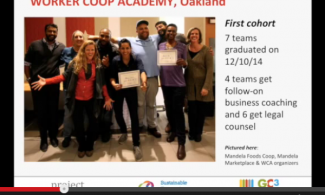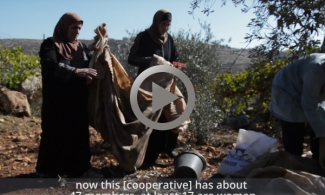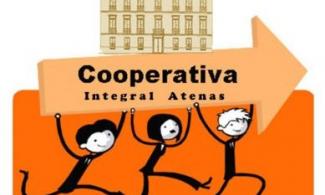
A Fable
Once there was a people who lived on crumbs.
The crumbs were the only sustenance to be found on the hard, barren land which the people inhabited, and consequently the competition for crumbs was intense.
Most people spent their days engaged in procuring and securing crumbs, rushing about with one eye on their neighbors and one eye ever on the look out for the precious bits of food – the bigger the better. Crumbs was all anyone talked about, all anyone thought about.
In every house, in every bed, the people dreamed a common dream: of finding a crumb so big they would never have to hunt for crumbs again – a crumb so massive they could use crumbs from that crumb to pay other people to search for crumbs on their behalf.
It was in such manner that a few of the people had managed to amass huge piles of crumbs, while the vast majority hustled about endlessly, eyes glued to the ground, ever fearful of the day when they failed to find enough crumbs to feed themselves or those they cared about. People traveled far and wide in the search for crumbs, and took great risks in procuring them. Sometimes people left their homes to look for crumbs in the morning...and never returned.
Among this people was one young man who had an unusual disregard for crumbs. He would look for them, like the others, but always in an off-hand sort of way. Usually he looked around at the other people or up at the sky. Still, somehow, he always managed to find enough crumbs to feed himself, even though when he did find a crumb it was usually by accident.
The young man had become saddened by the lives of the people he saw around him, and he sometimes felt an inkling that things were somehow not as they should be, in some way he couldn’t quite place.
Then, one day the young man saw something strange. It was just after he had inadvertently found a crumb while watching three people argue over how to divide a rather tiny crumb that all of them had happened upon at the same time. He had grown bored of their argument and was staring vacantly into the sky when he noticed something he had somehow missed before.
High above, barely visible, was a huge ledge that seemed to stretch from one horizon to the other. But it didn’t – not quite. As he strained his eyes to focus on the massive but dim form, he began to make out two mountains, like giant pillars descending from the ledge, one far to his left, the other far to his right. They seemed to hold the ledge between themselves, like a gigantic table. Over the edge of this table he thought he could see something raining down, like a thin mist.
The next day, he packed what crumbs he had and set off towards one of the mountain pillars. It took many days to reach the pillar, and many more days to make his way up it. His provisions quickly exhausted, he had to survive on what crumbs he found along the way. But his luck held and eventually he found himself atop the ledge. It stretched away from him on all sides, almost as far as he could see, as hard and flat and barren as his own land.
It was then that he realized with a shock that what he had imagined, from afar, to look like a gigantic table was, in fact...a gigantic table. And all around the table sat people of gigantic size, feasting on innumerable dishes arrayed on platters of gleaming gold and silver.
The giants’ feast was a raucous and rowdy affair. The giants’ table manners were rather unrefined, even crude. As they greedily consumed the dishes spread out before them, flakes and crumbs flew everywhere. Some of them spilled over the edge of the table where the young man had just ascended, tumbling down into the land below. He could just make out the people rushing about eagerly to collect them.
The young man watched in awe. Presently he noticed that every so often, servants would come to take the empty platters away and replace them with new ones. He decided to see where the giants’ food was coming from, and so he cleverly stowed himself away under a piece of lettuce as large as a bed-sheet, on a huge golden platter.
In the kitchen, the young man received another shock. Moving unnoticed through a pile of dirty dishes, he managed to get a good view of the cooks. He saw, much to his horror, that every ingredient that went into the delicacies the giants feasted on was nothing other than his own people.
His people dried.
His people fried.
His people ground to a powder.
His people sliced and diced, minced and sautéed.
His people frozen, steamed, pickled, and poached.
His stomached churned and his mind reeled. The truth was awful to behold, so dark and twisted that his intellect tried to reject it. But his eyes would not allow it. Torsos skewered, thighs and shoulders and buttocks seared and braised, gory innards ground to a paste. It was too much to bear, too much to comprehend. He realized he was holding a crumb he’d picked up from among the dirty dishes and tossed it away in horror and disgust.
As he slowly made his way back to the land of his people, his stomach growled and his mind spun around and around, endlessly asking a question for which he had no answer.
What now?
What now?
What now?
What now?
Author's note: This fable is an attempt to convey the essential understanding that lead me, and I imagine many others, to the cooperative and solidarity economy movements. In the traditional economy, those at the top feed on those below, and those of us below are forced to feed on the crumbs that fall from their table. To become "successful," then, is merely to benefit in an out-sized manner from this morbid, cannibalistic system. The tragedy of the situation is that even to merely have some small degree of security we are all forced to participate in it, in some way. If you don't want to eat the crumbs from the giants' table, what are you gonna eat?
Cooperatives, intentional communities, timebanks and all the others tools and strategies that we cover here on GEO are, I think, the beginnings of an answer to that question.
Go to the GEO front page





Add new comment